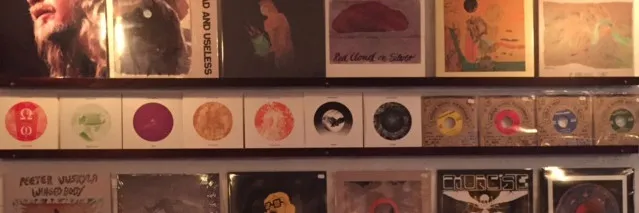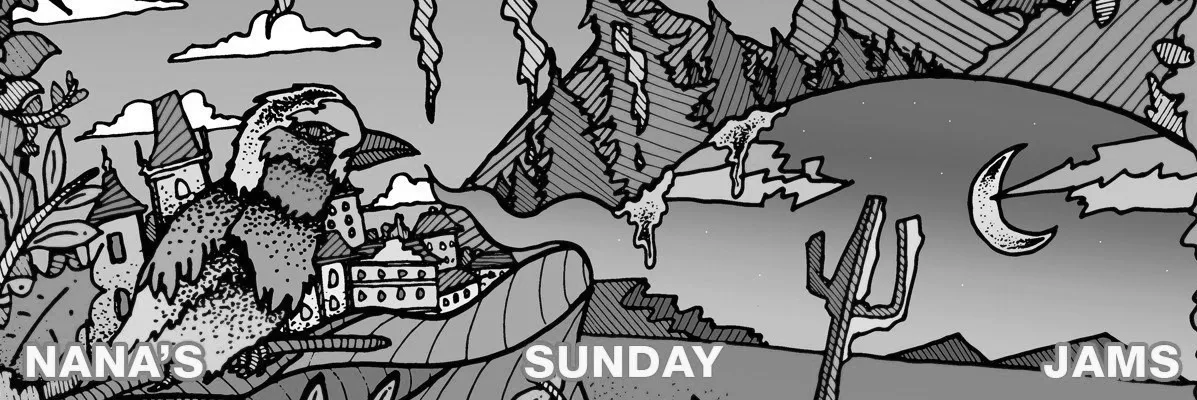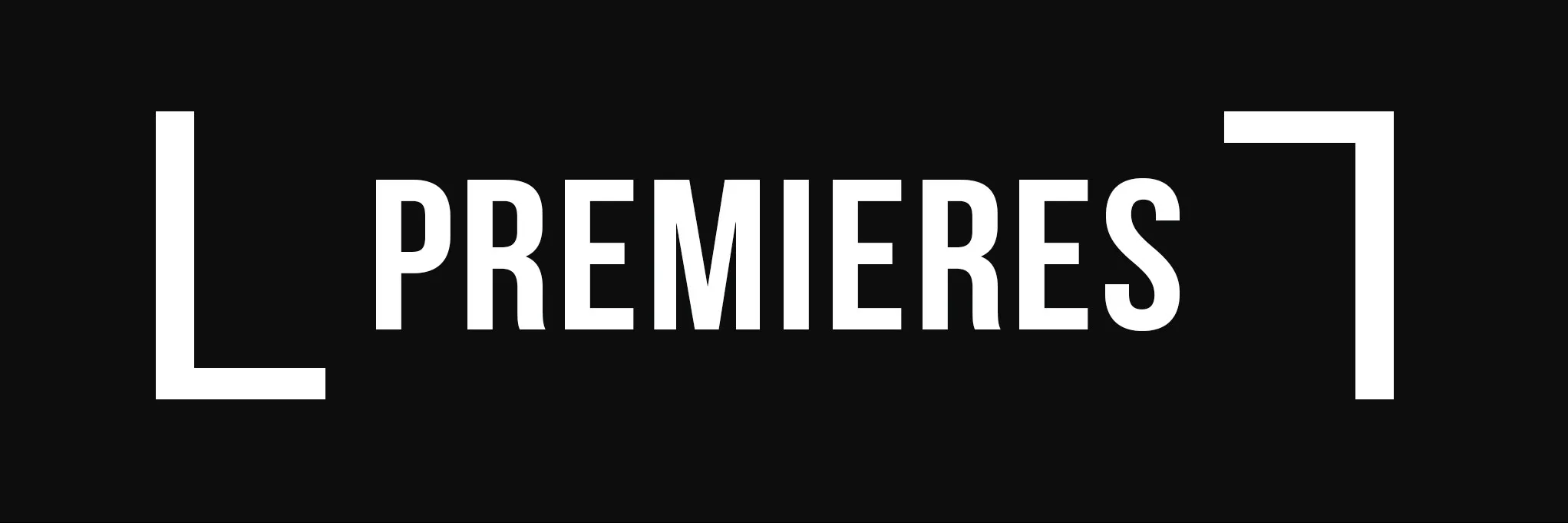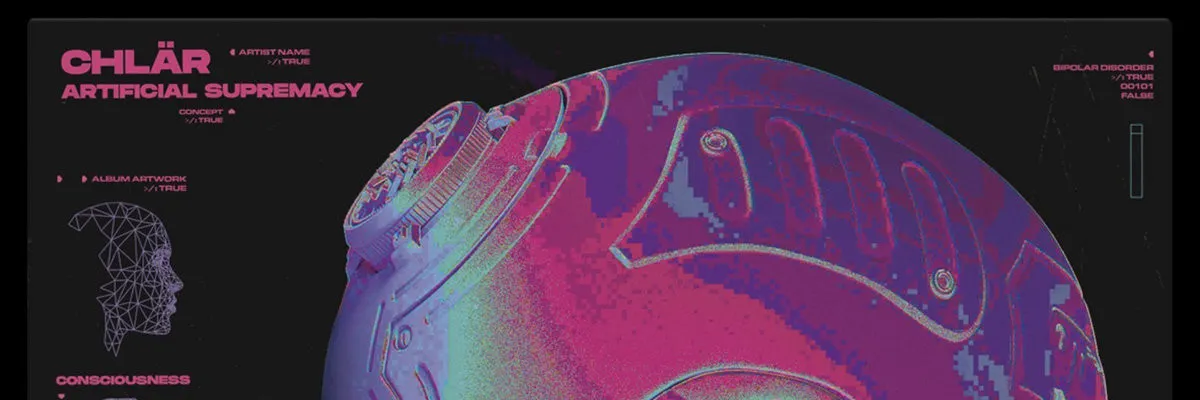 Anders Björnsson picks up the phone and explains he’s just about to open for the day. The thought of someone standing behind a counter ready to chat shop and sounds with customers is a welcome break from the constant barrage of furloughed photos we are now accustomed to.
Anders Björnsson picks up the phone and explains he’s just about to open for the day. The thought of someone standing behind a counter ready to chat shop and sounds with customers is a welcome break from the constant barrage of furloughed photos we are now accustomed to.
Following the outbreak of COVID-19 Sweden didn’t issue a direct instruction to close all but essential businesses and services. The polar opposite to so many countries, this means Music Lovers Records, in the country’s second city of Gothenburg, is likely one of few physical record shops still open in Western Europe. From the outside looking in, life appears to continue as per, but reality tells a different story.
“Economically it would be better to close down and take another job,” Björnsson says when we broach the dreaded subject. “But I don’t want to do that. If the situation continues for the rest of the year, then maybe it could be a problem for me. Because I have the rent, and bills. You know, I need to earn money.” This is proving difficult even with doors ajar, accentuating the depth of the crisis and ringing alarm bells as to how long it could take for a resumption of standard modus operandi. “I open at normal times, but maybe I’m lucky to sell 1/3 of what I did,” he says, explaining reduced office hours and work from home policies have significantly cut lunchtime and after work footfall over the last two months.
This is proving difficult even with doors ajar, accentuating the depth of the crisis and ringing alarm bells as to how long it could take for a resumption of standard modus operandi. “I open at normal times, but maybe I’m lucky to sell 1/3 of what I did,” he says, explaining reduced office hours and work from home policies have significantly cut lunchtime and after work footfall over the last two months.
The fact official advice does not enforce closure is a big problem. In the UK, clear mishandling of the pandemic makes criticising the government easy and necessary, but economic support has been relatively far-reaching. Even as a freelance writer, a notoriously precarious pursuit, a reasonable level of help is available, for the time being at least. But this has to be the case when you actively shutter an economy. Sweden is more complicated — without a compulsory lockdown, support is scarce.
“There might be a chance to just pay half my rent. But that’s down to my landlord. They have been really nice to me so far which is a big help,” says Björnsson. “But there’s nothing more than that.” The music industry has digitally rallied since the pandemic — headline grabbing music sales and Facebook feeds overflowing with torrential live streams are highly visible and a comforting sign of unity. How much difference all this can make in the long term is unclear. Björnsson has also shifted to focus more online, through Discogs for stock and Bandcamp for his experimental jazz label, Omlott.“I was already selling stuff on Discogs, but the buyers have dropped from there too. People don’t have money either, so they are careful with what they have. So maybe they are not ordering as much as they used to. I put a lot of records up, but that’s not enough for me really,” he says, explaining ‘a lot of records’ actually means almost everything. In the past digital listings were reserved for records that wouldn’t sell well locally.
The music industry has digitally rallied since the pandemic — headline grabbing music sales and Facebook feeds overflowing with torrential live streams are highly visible and a comforting sign of unity. How much difference all this can make in the long term is unclear. Björnsson has also shifted to focus more online, through Discogs for stock and Bandcamp for his experimental jazz label, Omlott.“I was already selling stuff on Discogs, but the buyers have dropped from there too. People don’t have money either, so they are careful with what they have. So maybe they are not ordering as much as they used to. I put a lot of records up, but that’s not enough for me really,” he says, explaining ‘a lot of records’ actually means almost everything. In the past digital listings were reserved for records that wouldn’t sell well locally.
“Prog rock, popular music, hard rock,” Björnsson replies when asked what proves popular in the shop, before explaining the approach of the business he set up in 2013 with Gustaf Dicksonn. “It’s just music for music lovers. We like all sorts. At the beginning it was very broad and it still is, although maybe becoming more and more focused on dance music. That’s the thing I started out with as my main interest, but it’s hard to just focus on one genre in Gothenburg, it’s not that big a place.”My first and only experience of Gothenburg, back in 2018, was overwhelmingly positive and led me directly to Music Lovers. In non-apocalyptic times the shop also has a cafe. Both are found in a cosy off-street courtyard. It’s a relaxed corner in the heart of downtown, complete with pastel hues and potted trees. A copy of ‘Le Bataclan’ — Lou Reed, John Cale and Nico’s 1972 live show in Paris — and the section marked ‘Goteburg’ caught my eye in particular. The latter is where you’ll find local wares from a community of producers cultivated by a town that’s more than familiar with techno.“They sell really well,” Björnsson says of the Gothenburg beats. “I sell a lot of club music from local labels, a lot of tourists coming here like to find stuff in the Gothenburg section. So maybe I sell more local stuff to tourists than people from Gothenburg.” It’s not hard to understand why visitors would want to take some of the city back home. Time here introduced me to DJ Lily’s intense and unforgiving sledgehammers — his BROR and Lilies imprints peddle sounds ideal for raucous 8AM sessions. Jens Wickelgren, AKA Enmetertre, pushes lush deep house with science fiction nuances. And you should look to Stilleben for classy electro cuts. Specialist sounds, the fact these sit next to alternative rock at Music Lovers makes sifting a varied treasure hunt, this breadth revealing a city that’s hard to pigeonhole in terms of styles.“I don’t know if it’s a particular sound here. What would you say?” Björnsson replies when asked to describe his hometown’s music. It’s no easy question to answer, but words like futurism, heavy and eccentric spring to mind. Traits that can be linked to a wider context; a city and country where clubs have always struggled amid prohibitive licensing, giving rise to word-of-mouth free parties where the emphasis is on native artists.
It’s not hard to understand why visitors would want to take some of the city back home. Time here introduced me to DJ Lily’s intense and unforgiving sledgehammers — his BROR and Lilies imprints peddle sounds ideal for raucous 8AM sessions. Jens Wickelgren, AKA Enmetertre, pushes lush deep house with science fiction nuances. And you should look to Stilleben for classy electro cuts. Specialist sounds, the fact these sit next to alternative rock at Music Lovers makes sifting a varied treasure hunt, this breadth revealing a city that’s hard to pigeonhole in terms of styles.“I don’t know if it’s a particular sound here. What would you say?” Björnsson replies when asked to describe his hometown’s music. It’s no easy question to answer, but words like futurism, heavy and eccentric spring to mind. Traits that can be linked to a wider context; a city and country where clubs have always struggled amid prohibitive licensing, giving rise to word-of-mouth free parties where the emphasis is on native artists.
The resulting community is close-knit and incredibly supportive but also open and welcoming, attitudes that encourage individualism and exploration — much like Music Lovers itself.
Written by Martin Guttridge-Hewitt
← Back to blog




